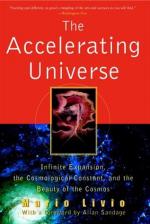|
This section contains 547 words (approx. 2 pages at 300 words per page) |

|
The cosmological constant is a mathematical term (symbolized by the Greek letter lambda, &lgr;) that German-born physicist Albert Einstein placed in his general relativity equations in 1917. The theory of general relativity predicted that the universe must either expand or contract, but Einstein did not believe this was possible. Einstein attempted to fix his equations by adding the cosmological constant, which served to halt the expansion. It can therefore be thought of as a positive energy attributed to space that, if exactly balanced against the force of gravity, will make the universe static.
In the decade following the formulation of general relativity, scientists proved that the universe is not static, contrary to Einstein's belief. In the early 1920s, Russian meteorologist Alexander Friedmann proposed an expanding universe model, now the generally accepted the big bang theory. A few years later, astronomer Edwin Hubble calculated that the majority of...
|
This section contains 547 words (approx. 2 pages at 300 words per page) |

|


